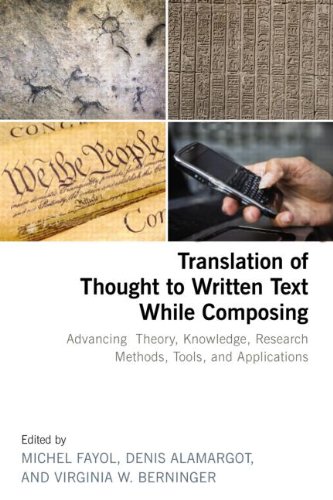

Most ebook files are in PDF format, so you can easily read them using various software such as Foxit Reader or directly on the Google Chrome browser.
Some ebook files are released by publishers in other formats such as .awz, .mobi, .epub, .fb2, etc. You may need to install specific software to read these formats on mobile/PC, such as Calibre.
Please read the tutorial at this link: https://ebookbell.com/faq
We offer FREE conversion to the popular formats you request; however, this may take some time. Therefore, right after payment, please email us, and we will try to provide the service as quickly as possible.
For some exceptional file formats or broken links (if any), please refrain from opening any disputes. Instead, email us first, and we will try to assist within a maximum of 6 hours.
EbookBell Team

5.0
100 reviewsTranslation of cognitive representations into written language is one of the most important processes in writing. This volume provides a long-awaited updated overview of the field.
The contributors discuss each of the commonly used research methods for studying translation; theorize about the nature of the cognitive and language representations and cognitive/linguistic transformation mechanisms involved in translation during writing; and make the case that translation is a higher-order executive function that is fundamental to the writing process.
The book also reviews the application of research to practice -- that is, the translation of the research findings in education and the work-world for individuals who interact with others using written language to communicate ideas.
This volume provides a rich resource for student, theorists, and empirical researchers in cognitive psychology, linguistics, and education; and teachers and clinicians who can use the research in their work.